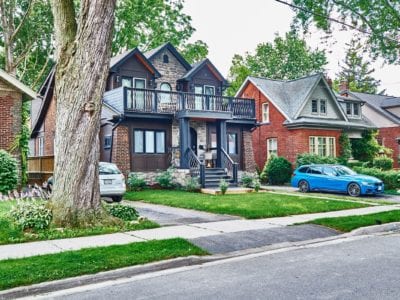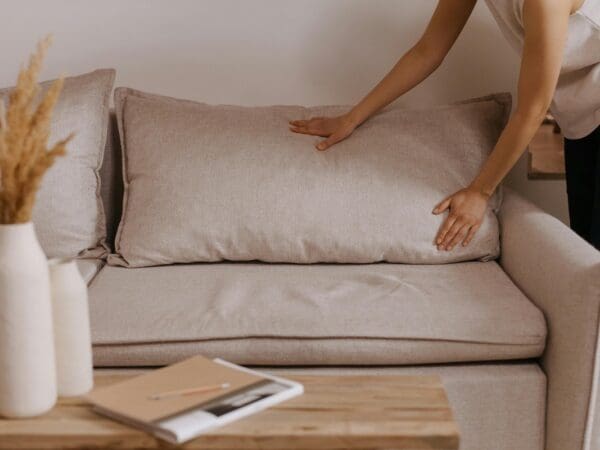For anyone buying a house today, it can seem unimaginable that it was once easy to get a mortgage. Zero-down mortgages and amortization periods of up to 40 years were possible, if you can believe it. And a stress-test was something you got at a hospital, not when applying for a loan.
All of this changed when the federal government began tightening up restrictions due to the 2008 housing crisis. Long amortization periods for high-ratio mortgages were one of the first things to go. The finance minister reduced it to 35 years, then 30 years, before finally cutting them to 25 years on any purchases with less than a 20% down payment.
We’ve been facing a different kind of housing crisis over the last few years. High prices have pushed many younger buyers out of the market, forcing them to rent or stay with their parents for much longer periods of time.
A few government programs sought to alleviate some of the burden, but still fell short in their aim of helping more people achieve homeownership. So now, what is old is new again, and the government is now allowing 30-year mortgages in some circumstances.
Are they a good idea? Or will the long term cost be more than it’s worth? In this post, we’ll take a closer look at some of the disadvantages and advantages of longer mortgages.
Is this the year you will break into the market and buy your first home? Our team can help you get off to a great start. Book a free consultation with us right here.
The Downsides of Longer Loans
Many people loathe the idea of being in debt and seek to pay off any loan as fast as possible. This makes sense for most large purchases that don’t appreciate in value, such as vacations or cars. Buying a home is different because you’re acquiring an asset that will grow in value over time, which in turn builds equity.
This is why getting into the real estate market sooner rather than later can have a positive impact on your future financial stability. That said, you can’t forget about the downsides of having a longer loan.
- Your house will ultimately be more expensive in the long term as more of your payments will go to interest rather than the principal.
- You will be in debt for longer, which can alter your future plans if you’re still paying off a mortgage while trying to retire.
A little background research before any real estate transaction is always a good idea. The posts below are a great place to start:
- Real Estate Jargon-What It Really Means
- Know the Real Estate Cycles and Hack the Market
- Is It a Good Time to Buy or Sell a Home in Etobicoke?
How the Numbers Add Up
A longer mortgage makes it feel like you’re paying less while you’re actually paying more. The numbers can be hard to quantify, so let’s break it down. Keep in mind that this is a very simplified example. Actual amounts will change as interest rates rise and fall over your term. A 20% down payment would save you mortgage insurance, so we will factor that in the following scenarios.
Imagine you’re buying a home for $1 million, which is actually considered reasonable for Etobicoke real estate. We can figure out the approximate monthly payments by using our mortgage calculator right here, using a hypothetical interest rate of 4.49%.
- The payment for a 25-year loan works out to $4,423 each month. That adds up to $53,076 per year, for a total of $1,326,900 once you pay off your house.
- A 30-year mortgage brings your monthly payment down to $4,076, or $48,912 for a year. Times that by 30 years, and your house ultimately costs you $1,467,360.
The Advantages of a 30-Year Mortgage
Buying a house may be more expensive than ever, but rental costs are spiking even more as landlords try to recoup their investment and generate cash flow. Owning a home protects you against those rising rental prices – and you no longer have to worry about evictions.
The primary benefit of a 30-year mortgage is that it might make homeownership a possibility for more people. reduces your monthly payment, which may make the difference between buying a house now or not at all.
Even if you can afford a home at today’s prices, a 30-year mortgage can make you more comfortable, potentially even allowing you to save money for renovations or upgrades. You may not like the idea of being in debt for such a long time, but remember that your mortgage is broken down into a series of terms rather than one long amortization period. You can always renegotiate your contract upon renewal if your financial situation has improved.
Once you’ve made the decision to buy a home, the next step is to make a plan. The posts below will help you know what to look for:
- What Will It Really Cost to Buy a House in Toronto?
- How Not To Overpay For Your New Home
- How To Tell If Your Dream Home Is A Money Pit Or A Worthwhile Investment
Limitations of the New Policy
The new 30-year policy comes with a few conditions. To qualify without a 20% down payment, you must be a first-time buyer and the home in question must be a new build. In other words, you could get a longer term on a $700,000 condo that’s brand new, but not on a resale home at the same price.
The reasoning may defy logic, but it seems that the government is trying to kill two birds with one stone; make houses more affordable while incentivizing builders to add to the much-needed supply.
Depending on your budget and what is available in the market at the time of your search, a 30-year mortgage might allow you to get into the market sooner. As always, it’s a good idea to weigh all of your options before reaching a final decision.
Do you want to explore the possibilities of buying a home in Etobicoke? Our experienced real estate agents could open doors you may not even know about! Give us a call at 647-282-7653 or email contact@thompsonsells.com with any questions.
Looking for more info?
Get in touch and find out how we can help.



